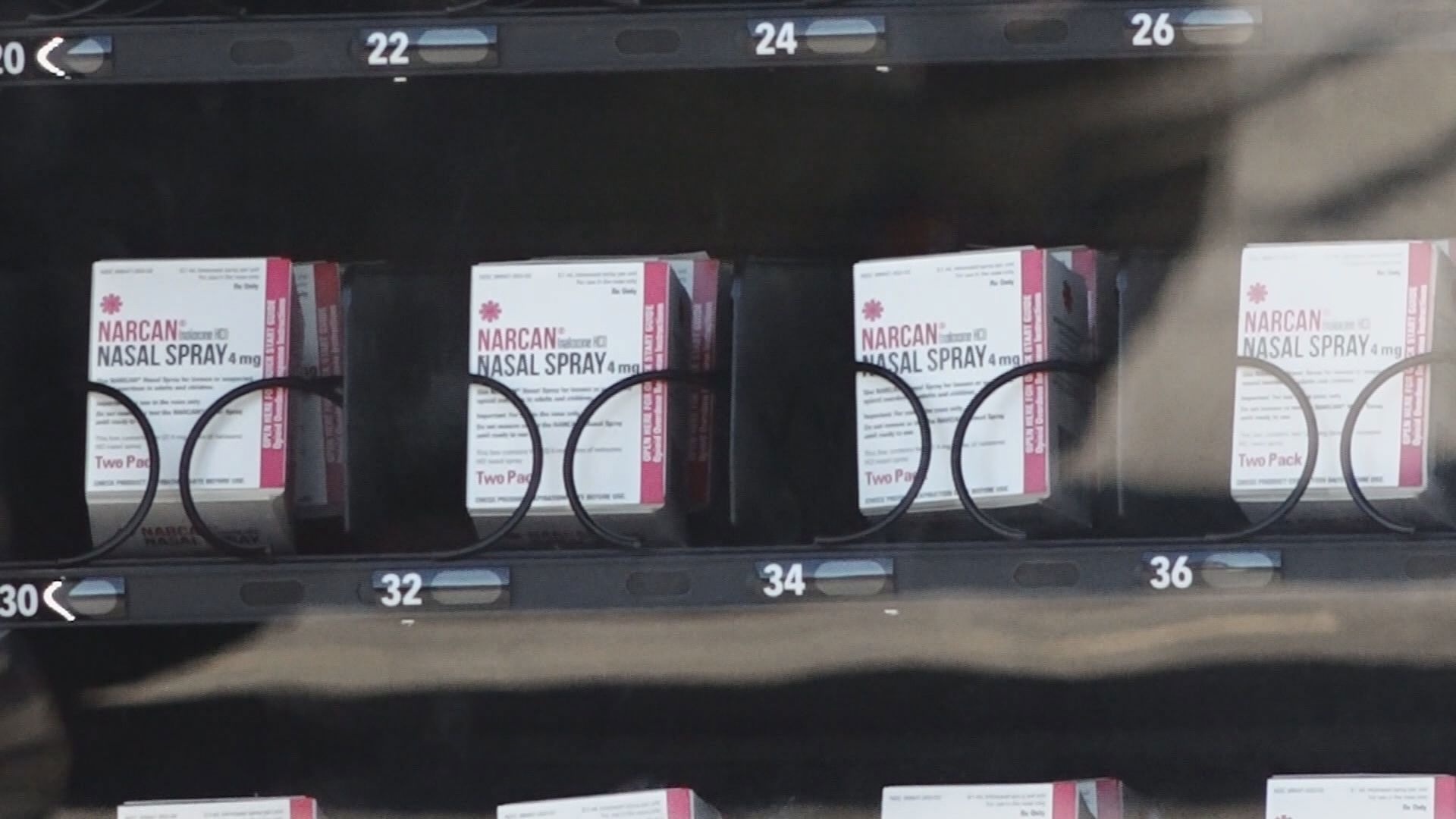GRAND RAPIDS, Mich — The leader of the Opioid Advisory Commission, a group tasked with advising state lawmakers on spending of opioid settlement funds, says they can’t get ahold of data, funding or officials.
Dr. Cara Poland, an addiction medicine specialist in Grand Rapids, says the OAC is supposed to guide lawmakers on how to spend the nearly $1.6 billion coming to the state from multiple national opioid lawsuits.
However, she says an entirely separate group appointed by Governor Whitmer, the Michigan Opioids Task Force, is not involving the OAC in the planning.
“To be clear, we're hearing nothing from the Opioid Task Force,” Dr. Poland said. “We could talk about how these commissions could align and work together, divide and conquer this work. However, without dialogue, it's impossible.”
The Opioid Task Force, made up of volunteers and experts from all over the state, is led by Dr. Natasha Bagdasarian, the state’s Chief Medical Executive. She presented the group’s spending plan for 2025 at a meeting in February.
“We are looking at our metrics and making sure that we're following the right metrics, and we're tracking all of the right data so that we can measure outcomes,” Dr. Bagdasarian said.
Dr. Poland says that plan was decided without the OAC’s input. In fact, that meeting was the first they’d gotten ahold of it.
“It was disappointing to receive the information at the same time as everyone else, because we really the opioid Advisory Commission has committed to collaboration,” Dr. Poland said.
When 13 On Your Side interviewed Dr. Bagdasarian about these concerns, she pointed to a recent membership expansion in the Task Force.
“There was a little gap when we were reforming this group of individuals, so during that time period, it is possible that there were some perceived issues with communication,” Dr. Bagdasarian said.
That expansion included important voices, like Sam Price, who does on-the-ground work in Central Michigan as the President and CEO of Ten16 Recovery Network.
“We put even more people in, so getting more voices kind of speaking into solutions,” Price said. “We have such a diverse state, with both urban and rural settings and different populations that we need.”
Overall, Dr. Bagdasarian disagrees with Poland’s accusations, saying their meetings are public and that all the data they can release is already on their website.
“We also are very aware of the importance of transparency, and there has been a perceived lack of transparency. However, I can tell you, I don't think that this is a real lack of transparency,” Dr. Bagdasarian said. “We have all of our data in terms of how we're spending money and our outcomes that is available publicly now.”
Meanwhile, the state is ramping up their spending on the opioid epidemic, setting aside $48.2 million for it in the budget passed in late June, $25 million more than the Opioid Task Force expected in their 2025 spending plan.
“I think there will be opportunities to kind of go back and kind of reprioritize and see if there's ways that we can pick up some other things to help advance the cause,” Price said.
Not included in the budget — the money the OAC requires to complete a “needs assessment.” The goal is to find areas for improvement in coverage throughout the state, allowing them to improve their recommendations to the legislature. They requested $500,000 to complete assessment, as required by the 2022 law that founded the commission. However, it did not make it into the budget.
Now, the OAC is back to square one, working to get the funding into a supplemental package.
“If, however, it is not funded at all this budget period, I think that what the OAC has heard from the public is that they are concerned about how this money is being appropriated, both at the state and local level,” Dr. Poland said. “So, I would hope that the public would reach out to their legislatures to express that concern.”
Despite disagreements, both leaders did mention similar priorities, such as combatting the racial disparities in overdose death rates.
“We know that Black Michiganders are dying at a much higher rate of overdose deaths than other races. We know that the Native American population has also been impacted by this, and so we are really making sure that we're putting equity first in all of these initiatives,” Dr. Bagdasarian said.
They also both agree that the money, and how it is spent, is crucial.
“The money is not forever, so this money will run out. This is time limited, and so we have to use it to really make the biggest impacts that we can now and in the upcoming years,” Dr. Bagdasarian said.
This time pressure comes as the crisis has claimed the lives of more than 13,000 Michiganders since 2019, making it deeply personal to many, including Dr. Poland.
“I was already on my way to being an addiction physician when my brother died of a self-inflicted gunshot wound, secondary to his alcohol use disorder,” Dr. Poland said. “I always tell people that that turned it from something I did as a job to something that I do as a passion.”
Dr. Poland still has hope that the two will be able to find common ground and work together.
“That's why it is my deepest hope that we can come together and put politics and departmental strife aside, do the right thing for the state of Michigan, which is to bring together the brightest, smartest people in this crisis, to address these gaps and save lives,” Dr. Poland said. “We can do better.”
►Make it easy to keep up to date with more stories like this. Download the 13 ON YOUR SIDE app now.
Have a news tip? Email news@13onyourside.com, visit our Facebook page or Twitter. Subscribe to our YouTube channel.
Watch 13 ON YOUR SIDE for free on Roku, Amazon Fire TV Stick, and on your phone.

